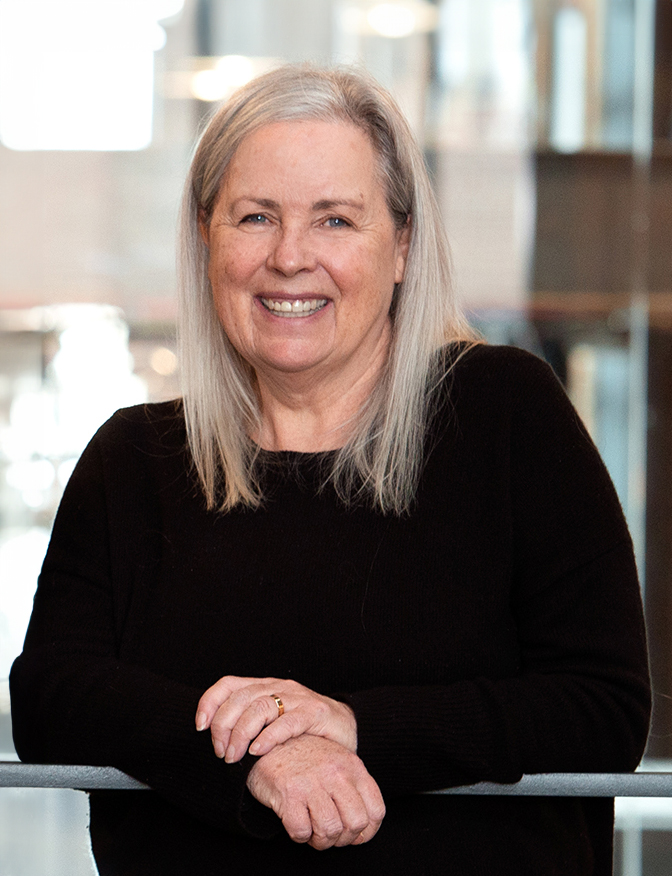Cooper elected to National Academy of Education
Article Highlights
- Melanie Cooper, a professor of chemistry and Lappan-Phillips Professor of Science Education in the College of Natural Science and College of Education, has been elected as a fellow of the National Academy of Education.
- Cooper is one of the first fellows to hail from a background in discipline-based education research, or DBER, specializing in studying and revolutionizing approaches to learning and teaching in STEM curricula.
- “Dr. Cooper’s work in chemistry has impacted thousands of Spartan students, and her influence among her higher education peers is a testament to Spartan research excellence,” said MSU President Kevin M. Guskiewicz.
Like many great honors, it began with a missed phone call and an email asking if there was time to chat.
Soon enough, Michigan State’s Melanie Cooper had gotten the good news — she’d been elected to the National Academy of Education.
“It was a thrill and honor,” said Cooper, a professor of chemistry and Lappan-Phillips Professor of Science Education in the College of Natural Science and College of Education.
“I was blown away.”
For nearly sixty years, the academy has championed educational research to improve educational policy and practice in the classroom.
"I am tremendously impressed with the research-based work MSU faculty members like Professor Cooper are doing to transform instruction in the science, technology, engineering, and math, or STEM, disciplines,” MSU President Kevin M. Guskiewicz said. “Dr. Cooper’s work in chemistry has impacted thousands of Spartan students, and her influence among her higher education peers is a testament to Spartan research excellence."
Congratulations to @melaniemcooper on her election to the @NAEduc! Through a curriculum known as CLUE (Chemistry, Life, the Universe, and Everything), Prof. Cooper has revolutionized the science learning experience for thousands of Spartans. 🧪 https://t.co/zvFyk7kL1k pic.twitter.com/JRHyDISctx
— MSU Chemistry (@MSUChem) May 6, 2024
Cooper, whose pioneering research continues to reshape students’ chemistry learning at MSU and beyond, is one of 14 new members of the academy.
She joins internationally recognized educational leaders and scholars from institutions such as the University of Michigan, the University of Virginia and Boston’s Museum of Science.
“We are delighted to welcome these diverse and trailblazing education leaders,” said Carol Lee, academy president.
“Their guidance will help expand our research and professional development endeavors.”
Cooper’s newfound membership comes with special significance. She is one of the only academy members to hail from a discipline-based education research background.
Known as DBER, specialists in this cutting-edge field are dedicated to studying and revolutionizing approaches to learning and teaching in science, technology, engineering and math, or STEM, curricula.
“It feels important to be honored for this work,” Cooper said. “We’re a relatively new field, and the academy's invitation feels like a door opening toward greater recognition.”

“Congratulations to Professor Cooper who is truly deserving of this remarkable recognition of her excellent scholarship and impact on the DBER field and for prioritizing success of STEM students across the college. Over a decade ago, Professor Cooper was hired to initiate and lead an MSU DBER program that would begin the transformation of STEM teaching to best practices with continuous improvement," said Phil Duxbury, dean of the College of Natural Science. "Her impact has been extraordinary starting with successful transformation of the introductory chemistry courses and continuing to hiring of DBER researchers across the college who have transformed or are in the process of transforming all of our gateway and introductory courses. Thank you to Professor Cooper for these outstanding contributions and thank you to the National Academy of Education for recognizing the DBER field that she inspires.”
Cooper is a renowned researcher whose work focuses on developing evidence-based approaches to instruction, student learning, and curriculum reform in undergraduate chemistry.
In addition to her election to the academy, she's been broadly recognized for her work by other scientific and educational institutions.
She’s received the Education Award from Great Britain’s Royal Society of Chemistry’s Education Division, is a fellow of the American Chemical Society, and has served on the National Academy of Sciences Board on Science Education.
Over the past decade, Cooper’s research has fundamentally impacted the educational experience of undergraduates at MSU through the innovative curriculum known as CLUE, or, Chemistry, Life, the Universe and Everything.
Co-authored with Professor Michael Klymkowsky, a molecular biologist at the University of Colorado-Boulder, CLUE is a remade general chemistry experience that places the questions of “how” and “why” at the forefront of understanding chemical phenomena.
Rather than focusing on memorization or simply arriving at correct calculations, CLUE organizes student learning around core, interconnected disciplinary ideas such as energy, bonding, and molecular structure.
“By starting with very simple phenomena and ending up with much more complex phenomena, we’re helping students actually use their knowledge in the context of big ideas, rather than repeating back an answer,” Cooper explained.
Since its implementation at MSU, CLUE has achieved impressive results: hundreds more students are passing their general chemistry courses every year and with higher GPAs.
Combine this with the fact that CLUE materials are freely accessible to students, and you get an idea of the impact Cooper and her colleagues have had on Spartans taking crucial gateway classes.
“It’s made a real difference,” Cooper said.